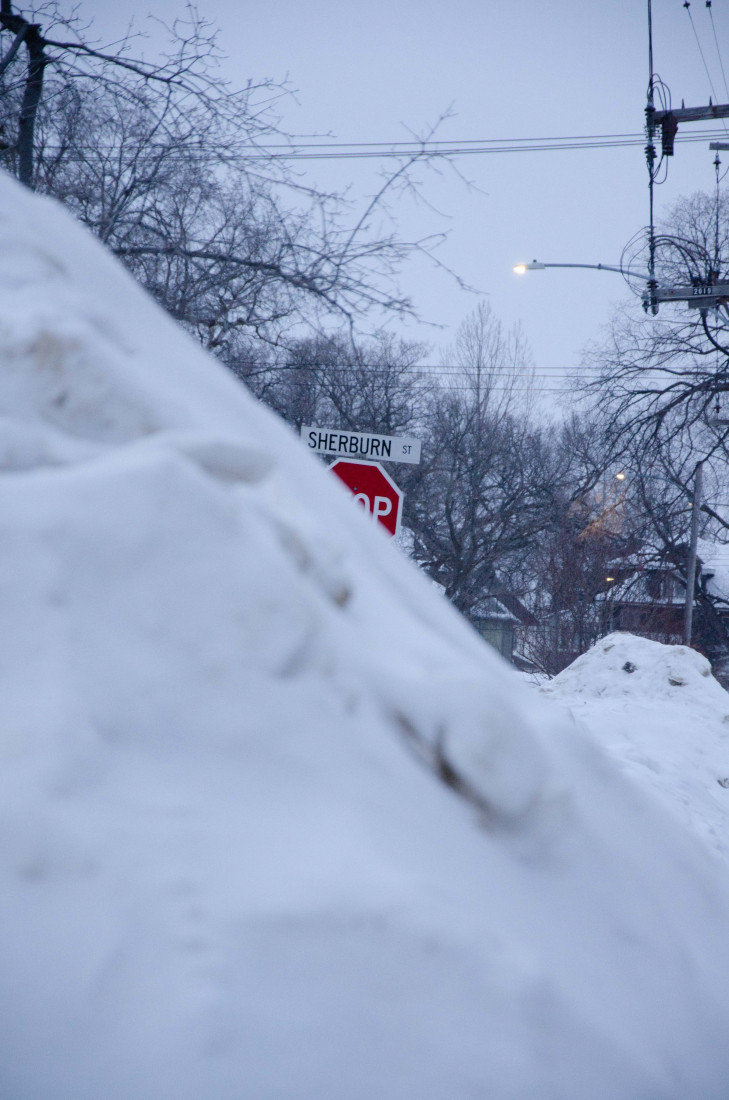Welcome to Winterpeg
Unusually cold and snowy winter has wide-ranging impact
The massive amount of snowfall this winter will have a bigger impact than annoyingly tall snowbanks. (Photo by Keeley Braunstein-Black)
In addition to breaking records for the cold, we have also had an unusually high amount of snow.
“By the end of February, we had approximately 160 cm of snow at the Winnipeg airport, much higher than the long-term average of 100 cm of snow,” Dr. Nora Casson, associate professor of geography at the University of Winnipeg, says.
Extreme winter weather has many consequences. On the top of many Manitobans’ minds is the risk of spring flooding, though Casson says other factors also contribute to this.
“The risk of floods also depends on how wet it was in the fall, how quickly the snow melts and what happens in other parts of the Lake Winnipeg Basin, especially in the US,” she says.
There are many other consequences to a snowy winter that are discussed less often.
“Large spring melts can also be a risk factor for poor water quality later in the season, although this also depends on other factors,” Casson says. In fact, snowmelt is one of the main sources of nutrient pollution (especially of phosphorus) to lakes.
In addition to having an impact on the physical environment, extreme winter weather can influence many people’s mental health. The most common manifestation of this is seasonal affective disorder (SAD).
According to the Canadian Mental Health Association, 2 to 3 per cent of Canadians experience SAD in their lifetimes, and an additional 15 per cent experience a milder form. SAD is more prevalent in women, adults and people who live in northern areas.
Kirt Hayer, president of the University of Winnipeg Students’ Association (UWSA), says a subset of students have been particularly affected this winter.
“Some international students may come from milder climates, and extreme winters are especially challenging for those students,” he says.
In addition to having to mentally cope with this weather, they may face physical challenges.
“From what I’ve heard, something that is challenging for international students new to extreme winters is walking on slippery surfaces,” Hayer says, adding that “it often takes some time and some falling” to learn how to navigate ice.
Casson says that while “Manitoba winters are getting shorter, warmer and less snowy,” this is due to climate change, which has many negative impacts.
“There are lots of ecological and societal processes that depend on cold and snowy weather,” she says.
“Things like skating on the river, ice carving at Festival du Voyageur and ice roads that connect remote communities all depend on cold weather,” Casson adds.
The UWSA encourages students to use campus mental-health resources, which can be found at theuwsa.ca/mental-health-resources.
Published in Volume 76, Number 20 of The Uniter (March 10, 2022)






